Mobility Scooter Prescription (Occupational Therapy)
A mobility scooter is a type of mobility aid which helps somebody move around when their mobility or walking is limited. Most scooters will have four wheels and are able to drive over different types of terrain, indoors and outdoors, and can hold charge for quite a long distance.
At Community Therapy, our Occupational Therapists assist people with the assessment and prescription of appropriate mobility scooters. This also may involve applications for funding (i.e. through the NDIS, LTCS, aged care package or other funding schemes) for the purchase of mobility scooters.
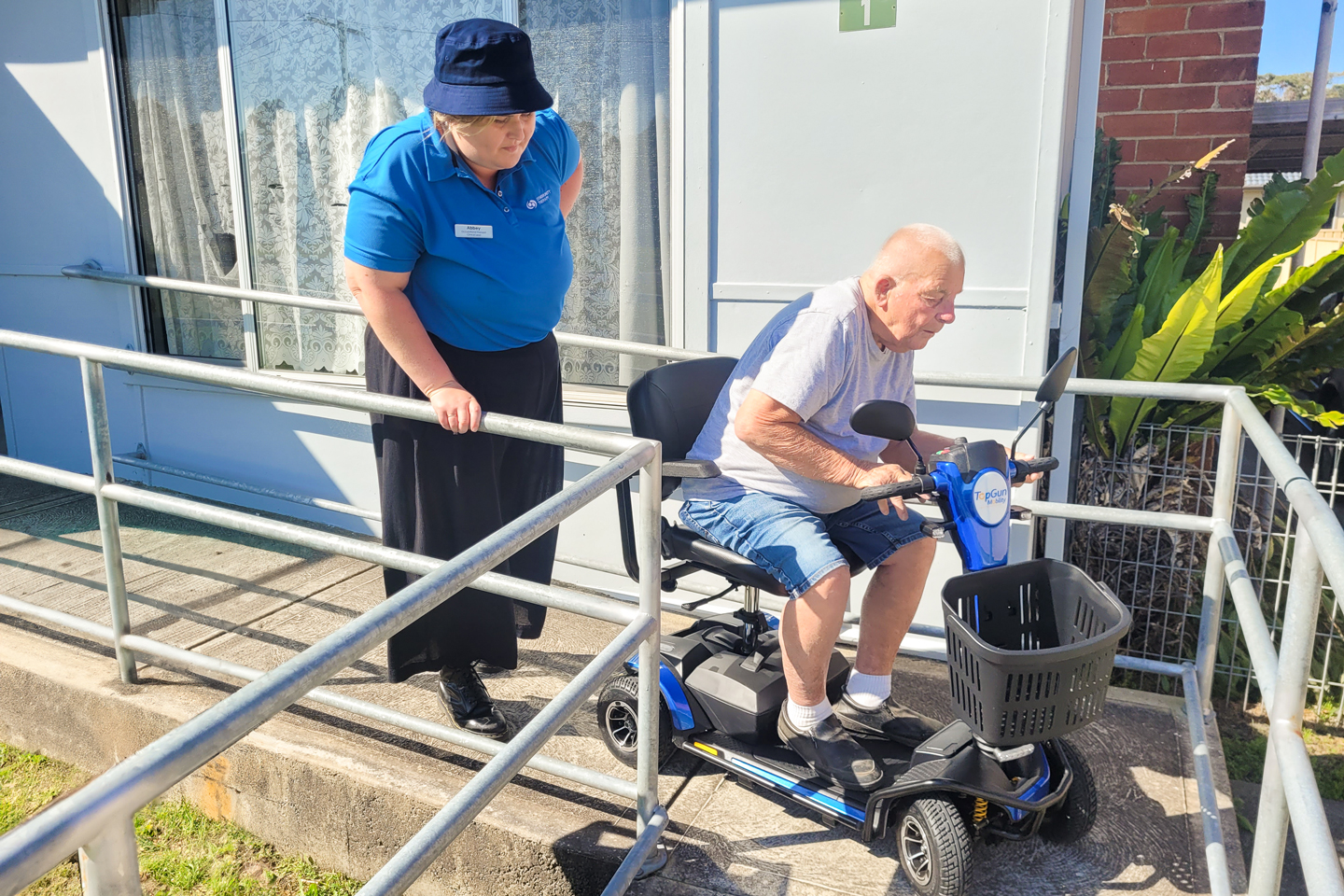
Who is Appropriate for a Mobility Scooter?
Typically people that are looking for a mobility scooter, have some sort of limitation with their walking, and therefore require the use of a mobility scooter to access the environment and the community at large.
This is an important component of the assessment process that our Occupational Therapist will perform. This process would often involve a medical questionnaire, as well as appropriate competency of being able to drive and operate the mobility scooter safely.
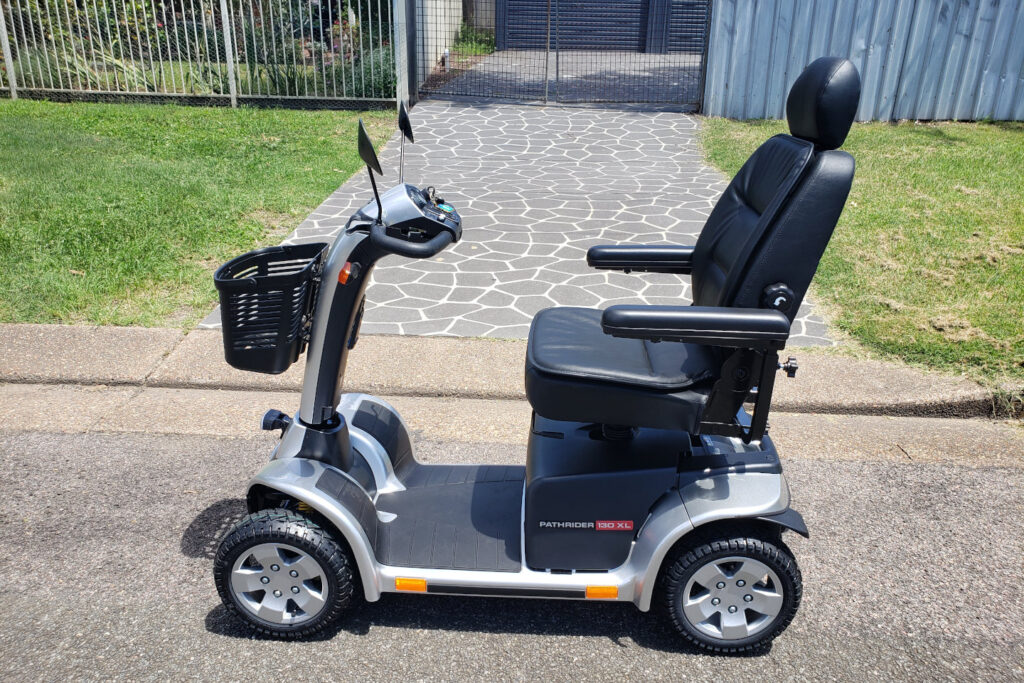
How Could a Mobility Scooter be Funded?
At Community Therapy, we work across primarily the aged care and disability sector, and we support:
- NDIS participants
- Lifetime Care and Support participants
- Aged care consumers with Home Care Packages
- Commonwealth Home Support Program funding
- Short Term Restorative Care Program funding
- Private health insurers with different types of initiatives
- Private paying consumers
The way in which funding is approved for each funding scheme differs.
However, one common theme is that an Occupational Therapy assessment, trial, and associated quotes are required to submit to then obtain approval for purchase.
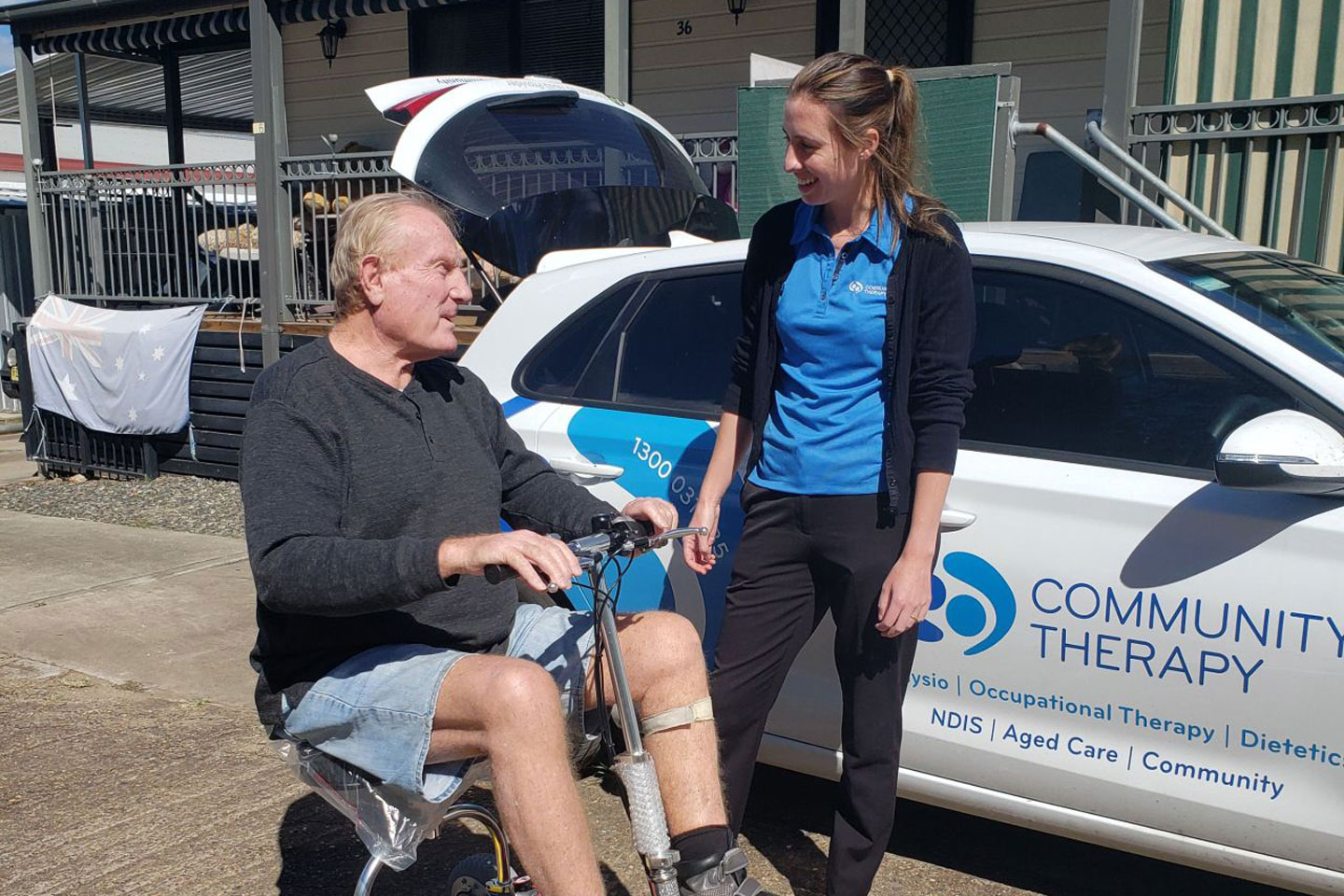
Types of Mobility Scooters
There are many different types of mobility scooters. Scooters often help people achieve goals relating to community access (i.e. accessing shops, parks, etc).
There are many different kinds of scooters on the market now that vary greatly in terms of size, length, width and safe weight limit. There are variances in size of wheels, as well as the number of wheels (three wheeled scooters are available).
There are extensive amounts of customizations that can be made to scooters, whether that be attachments and add-ons, all the way through to Assistive Technology to assist in the operation of a scooter if somebody has difficulties with their functional ability to operate the scooter.
Our Occupational Therapists people consider a range of scooters that are reasonable and necessary for their individual needs.
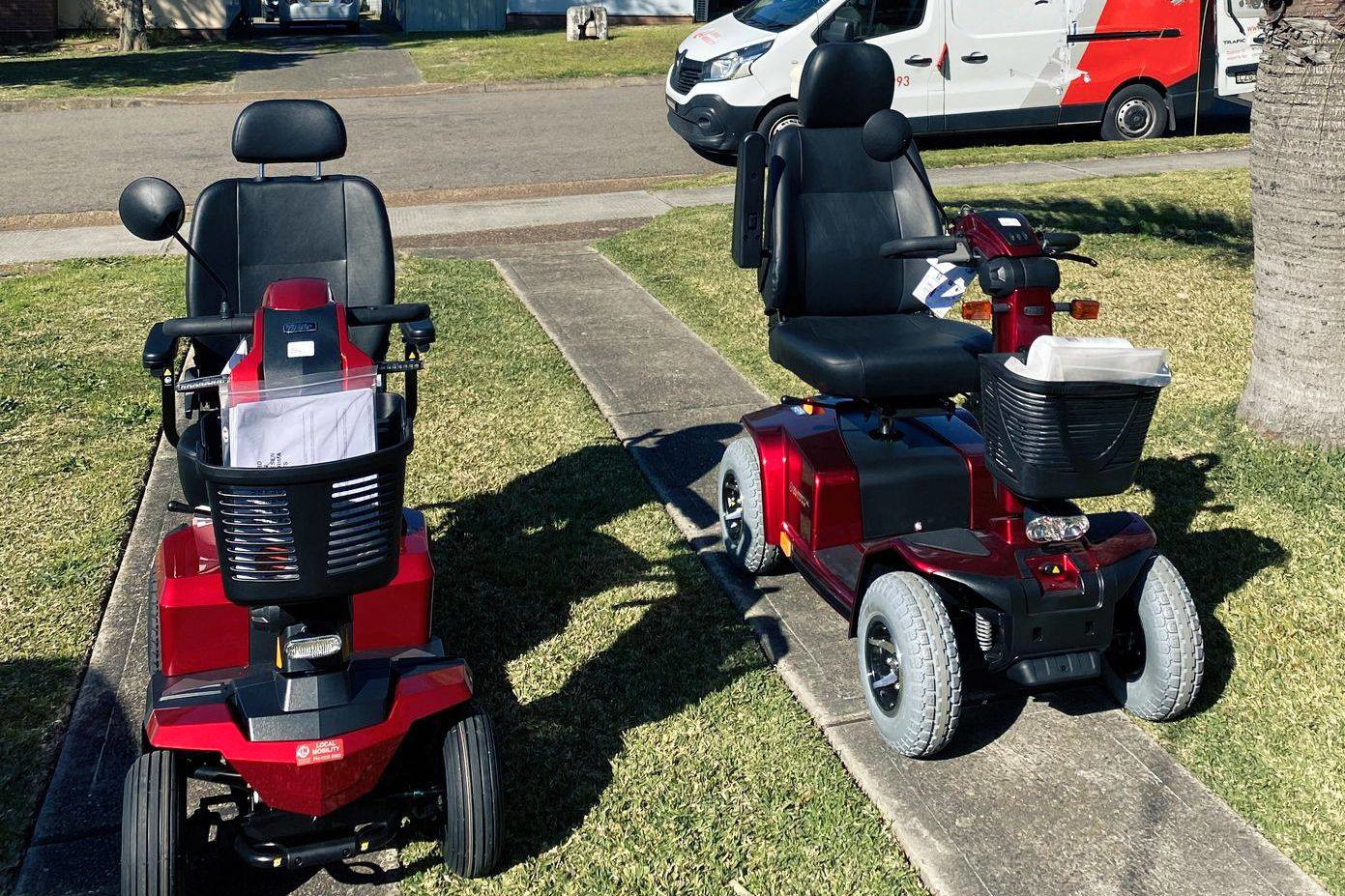
User Operation
Scooters are typically controlled with hand operated acceleration, braking and turning mechanisms. Some models will offer assisted braking and other computer-controlled assistance also.
There are variances in how scooters can be controlled. As briefly mentioned, there is advanced technology that is typically paired with electric scooters/wheelchairs. This can be chin-operated, eye-gaze operated, as well as other options.
Community Therapy’s Occupational Therapists will liaise with the equipment supplier if advanced scripting and customisation of a power device is required.
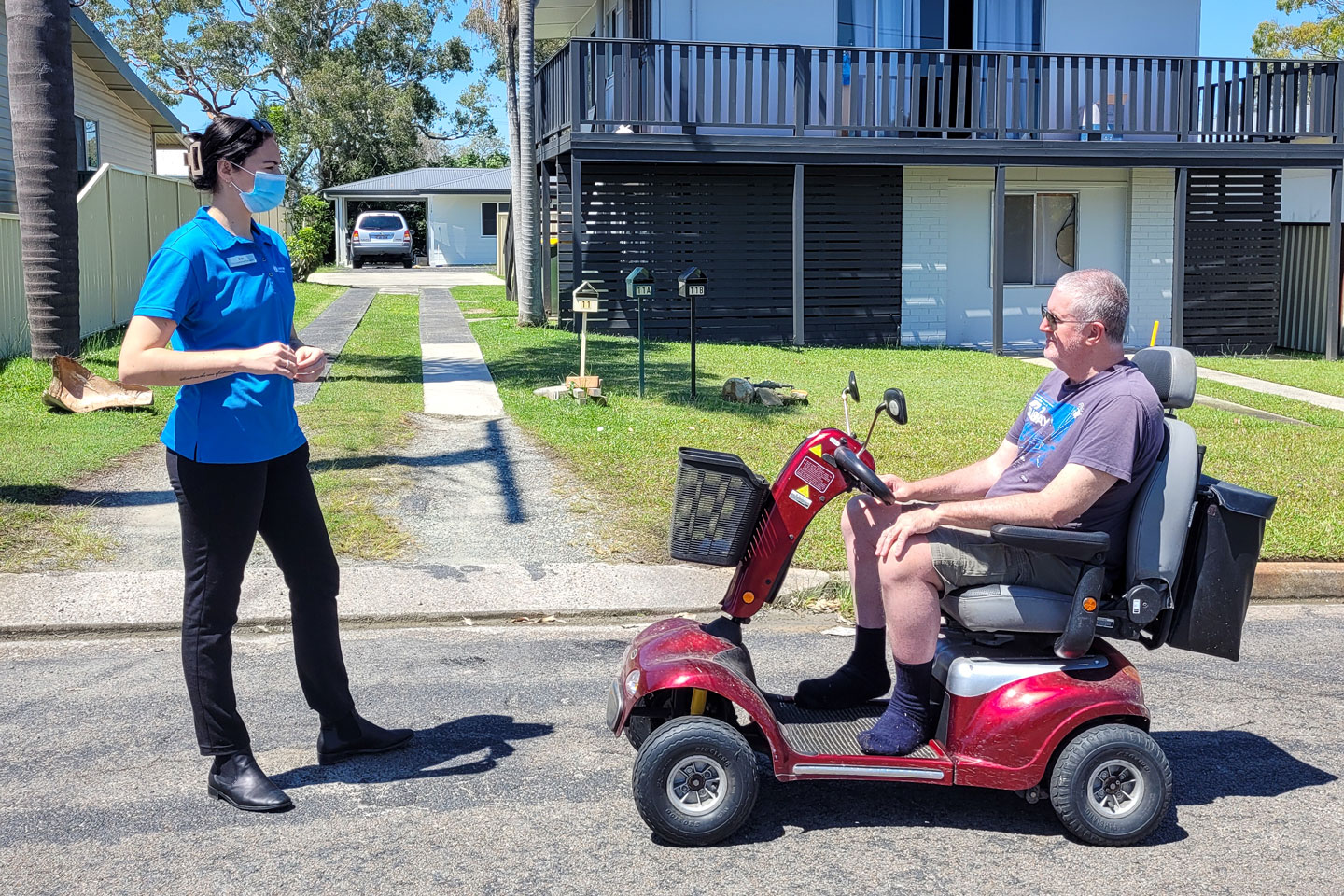
Mobility Scooter FAQ
-
How long does the battery last?
The length that a mobility scooter’s battery lasts, and how far it can drive, varies dramatically depending on the type of model.
It is more critical to determine what the person is looking to use the scooter for and how far they’re likely to use it at any given time, that allows the right type of models to be trialled.
There are currently models that can last anywhere between 20-50km.
-
What are the possible changes that may be required to my home environment?
Part of an Occupational Therapy assessment for a mobility scooter and trial is looking at;
- Where will the scooter be stored
- Where will it be charged
- Safe access getting onto the scooter and off the scooter within the home environment
Often people already have a suitable location for this to occur, such as a garage.
If there isn’t a suitable location for this to occur, then the OT will discuss environmental modifications with the consumer. This could be threshold ramps to get over a small step, all the way through to the larger ramps to get over large thresholds. There could also be a variety of other environmental considerations.
-
What training or education is provided to the person/carer?
From the initial Occupational Therapy assessment, through to the scooter trial, the Occupational Therapist will consider training and education at all stages.
A large part of the training and education is performed upon delivery of the scooter, in which we provide appropriate training and education to everybody involved.
Examples include:
- Turning
- Safe braking
- Driver assists
- Turning on and off the device
- Charging
- Recommendations on service intervals
-
How and when should a mobility scooter be reviewed?
At Community Therapy, we recommend an annual review of two things.
- An annual review of the scooter by a service technician. Typically, this is the supplier. This is to ensure safe management of the scooter, in terms of repairs and maintenance, and;
- An Occupational Therapy review of the person’s functional ability to continue using the scooter, especially if someone is living with a condition that may deteriorate
From this review there is often quite a clear recommendation, and this takes into consideration whether there is a variable or progressive medical condition that will continue to change the person’s functional ability.
-
Can you share an example of a goal you've helped someone achieve through the prescription of a scooter?
Typically, people are looking to obtain a scooter to regain or maintain independence with community access.
We have countless stories of participants and consumers that have gained funding, through the NDIS or through their aged care package, for the purchase of a scooter that has allowed them to continue to access their local community.
Simple things can be quite meaningful. We’ve seen people:
- Access their locals shops, newsagent, cafes etc
- Able to maintain engagement in local associations and clubs
- Attend sporting grounds and parks
With a carefully considered approach and the expertise of an Occupational Therapist, we’ve seen many great outcomes with mobility scooters that have changed people’s lives for the better!

